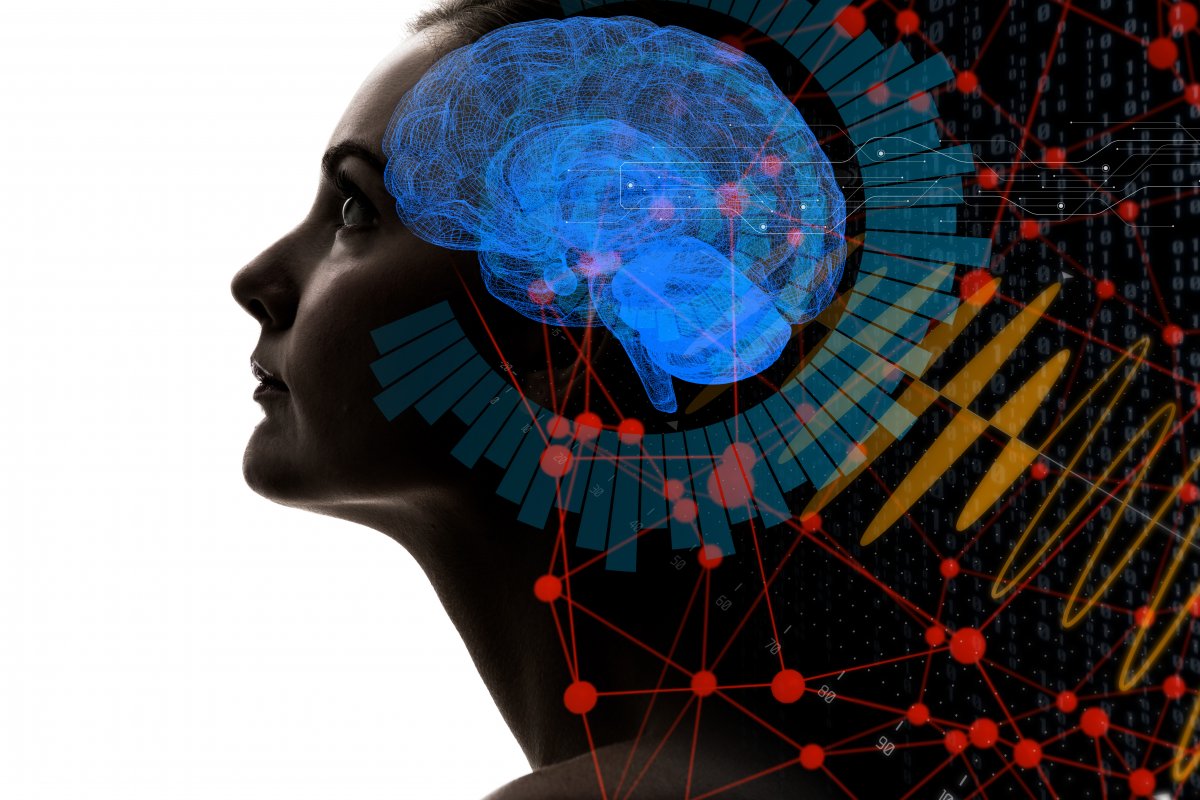Nita Farahany is a futurist and legal ethicist at Duke University in Durham, North Carolina. She has spent much of her career researching the implications of new technologies – especially those that try to better understand or even change our brains.
In recent years it has been possible to experience how neurotechnologies from the research laboratories have been put into practice. Schools have used devices to monitor children’s brain activity to determine if they are paying attention. Or police authorities are considering using systems to check whether someone is a suspect or not. Employers are also interested in making sure their employees are always awake and productive.
All these procedures promise us completely new insights into our own psyche. But our brain data is valuable — and it could be dangerous to let it fall into the wrong hands, argues Farahany in her new book, The Battle for Your Brain. In an interview with MIT Technology Review, the futurologist talks about what awaits us.
In your book you describe how technologies that collect and examine our brain data could be used – for good and for bad. What can be read from the data of a person’s brain today?
When I say brain data, I mean the use of EEG (electroencephalography), fNIRS (functional near-infrared spectroscopy), fMRI (functional magnetic resonance imaging), EMG (electromyography), and other methods that record biological, electrophysiological, and other functions of the human brain. The devices used for this usually collect data from the entire brain and you can then use software to try to filter out a specific signal.
But brain data are not thoughts. However, it can be used to draw conclusions about what is going on in a person’s mind. There are brain states that can be decoded: tired, alert, distracted, engaged, bored, interested, happy or sad. One could then find out about what the person is thinking or feeling, whether they are hungry, whether they are liberal or conservative.
You can also pick up on a person’s reactions and try to trawl their brain for information and see what might be stored in their memory or thought patterns. You can show test persons numbers to find out their PIN number step by step. Or pictures of political candidates to determine whether they tend to react positively or negatively. You can query a person’s bias, but also their knowledge of the content, such as knowledge of a crime scene or a password.
The security of our brain data
So far, most people only know that such brain data exist through medical examinations. Our health data is fundamentally protected. But what about the brain data collected from consumer products?
I feel like we’ve come to a turning point here. This year and in the next two years, many consumer devices from this area will come onto the market. There have been tremendous advances in artificial intelligence, which allows us to decode brain activity. And also in the miniaturization of electrodes, which allows manufacturers to even build them into earphones and headphones. There has also been significant investment from large technology companies in the field. I believe that these procedures will soon be ubiquitous.
So far it’s like this: the only person who has access to your brain data at the moment is yourself, and it is only evaluated in the internal “software” of your brain. But as soon as you put such a device on your head, you immediately share this data with the manufacturer of the device and the provider of a platform. They could also ultimately be passed on to the government or employer if they have provided you with such hardware.
Is that fundamentally bad?
For individuals, having access to their own brain data is a transformation, and that’s good at first. The brain has always been a seemingly untouchable and inaccessible area of our body. And suddenly it is in the hands of the individual to take action. The relationship we will have with ourselves will change. If scientists and researchers have access to this data, it could help them better understand brain dysfunction, which could lead to the development of new therapies for neurological and mental disorders. So it is not the collection or production of the data that is problematic, but its use to the detriment of individuals, a collective or a group. The problem is that this could happen very quickly.
For example, an authoritarian government that has access to such data could use it to identify people who are not as politically active as they would like. This is a fairly acute and serious misuse of such information. Or one could try to identify people who are neurodiverse, who discriminate against or marginalize them. In the workplace, they could be dehumanized by being subjected to neurosurveillance. All of that would suddenly be possible.
Difference to Brain Computer Interface (BCI) data
Some consumer products from this area, such as headbands and earphones, which are said to measure brain activity and thus relieve users of stress, have been dismissed by some scientists as gimmicks.
That’s right. The die-hard Brain Computer Interface (BCI) fans who are working on implantable hardware to revolutionize, or at least improve, health say it doesn’t capture very much real information. The signal is distorted, for example by muscle twitching and hair. But that doesn’t mean that there isn’t a signal to evaluate. There are still interesting things that are significant. I think if you just dismiss that, you do it at your own risk. You never know what’s happening in the field, progress is rapid.
